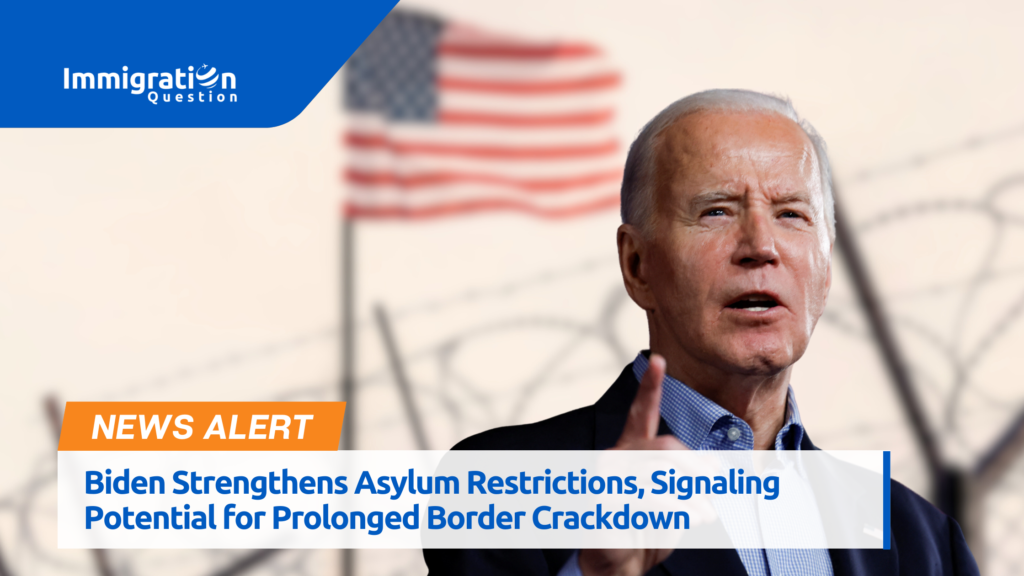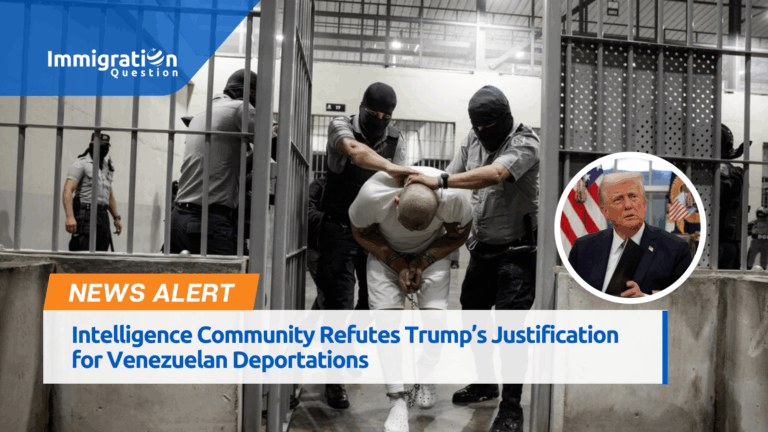In a significant development in U.S. immigration policy, the Biden administration has announced new measures to tighten asylum regulations. This announcement expands the partial asylum ban enacted at the U.S. southern border in June.
The aim of this policy change is to reduce illegal crossings and streamline immigration processes, most likely through the presidential election and beyond. These new policies are part of a broader effort to manage increasing migrant numbers while addressing security and humanitarian challenges and will impact how asylum claims are processed as well as the criteria under which they are evaluated.
The Department of Homeland Security (DHS) revealed the updated guidelines outlining stricter requirements for individuals seeking asylum. The administration argues that these changes are necessary to address ongoing challenges at the border, including record numbers of migrants arriving from Central and South America.
Key Changes in Asylum Policy
Under the newly announced rules, applicants must demonstrate that they have sought asylum in at least one other country before arriving in the United States. This requirement seeks to reduce what the administration views as “asylum shopping,” where migrants pass through multiple countries to reach the U.S. without applying for protection elsewhere.
The DHS additionally outlined new criteria for eligibility that emphasize credible fears of persecution based on specific factors such as race, religion, nationality, political opinion, or membership in a particular social group. As part of this initiative, the administration is streamlining the asylum application process, aiming to expedite decision-making while ensuring thorough evaluations.
Reaction to Policy Extension
Immigrant advocacy organizations have expressed strong opposition to these changes arguing that the new policies will disproportionately affect vulnerable populations, particularly those fleeing violence or persecution in their home countries. They claim that requiring applicants to seek asylum in other countries first could endanger lives and contravene international obligations under refugee law.
Political Implications of the Policy Extension
The Biden administration faces pressure from multiple fronts. On one hand, it aims to address the concerns of immigration hardliners who argue that the current policies are too lenient and contribute to chaos at the border. On the other hand, the administration risks alienating progressive supporters who advocate for more humane immigration practices.
Political analysts suggest that these changes are part of a broader strategy to stabilize the situation at the border ahead of the 2024 elections. As the migrant crisis continues to escalate, Biden’s approval ratings have been affected, particularly among independent voters who prioritize border security.
Ongoing Challenges
Despite the new restrictions, the challenges at the U.S.-Mexico border remain substantial. In recent months, there has been a surge in crossings, with U.S. Customs and Border Protection (CBP) reporting over 200,000 encounters in September alone. Many migrants cite worsening conditions in their home countries, including violence, poverty, and political instability, as the driving forces behind their journeys to the United States.
The administration has also announced plans to increase funding for border security and enhance collaboration with Central American governments to address the root causes of migration. “We are committed to a comprehensive approach that not only secures our borders but also provides support to those in need,” said DHS Secretary Alejandro Mayorkas in a recent press briefing. Read here.
Looking Ahead
As the Biden administration implements these new asylum restrictions, the implications for migrants, advocacy groups, and the political landscape remain to be seen. While the goal is to create a more orderly and efficient asylum process, the potential impact on vulnerable populations raises significant questions.
The ongoing debate around these policies will likely shape immigration discourse in the coming months, with the administration caught between the need for reform and the commitment to uphold the values of compassion and protection for those fleeing persecution.










